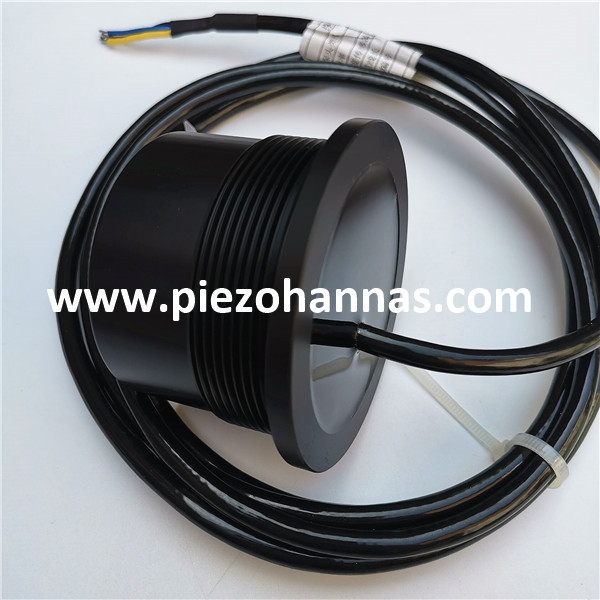Hubei Hannas Tech Co.,Ltd-Professional Piezoceramic Elements Supplier
Hot Keywords:
- All
- Product Name
- Product Keyword
- Product Model
- Product Summary
- Product Description
- Multi Field Search
Views: 0 Author: Site Editor Publish Time: 2024-05-30 Origin: Site









Oil level detection is a crucial aspect of maintaining efficient operations in various industries, and ultrasonic flowmeter transducers have become a popular choice for this task. In this article, we will explore how ultrasonic flowmeter transducers work, their applications in oil level detection, and the advantages they offer over traditional methods. By understanding the technology behind these transducers and the benefits they provide, businesses can improve their monitoring systems and ensure accurate and reliable measurements of oil levels. Whether it's for storage tanks, pipelines, or equipment, ultrasonic flowmeter transducers offer a versatile solution for detecting oil levels with precision and efficiency.
Ultrasonic flowmeter transducers are essential components in the functioning of ultrasonic flowmeters. These transducers work by emitting ultrasonic waves through a liquid medium, which then bounce off any particles or bubbles present in the fluid. The transducer then receives the reflected waves and calculates the time it took for the waves to return, allowing it to determine the flow rate of the liquid.
One of the key features of ultrasonic flowmeter transducers is their non-intrusive nature, as they do not come into direct contact with the liquid being measured. This makes them ideal for use in a wide range of industries, including water and wastewater treatment, chemical processing, and oil and gas production.
The accuracy and reliability of ultrasonic flowmeter transducers make them a popular choice for companies looking to monitor and control the flow of liquids in their operations. By utilizing ultrasonic technology, these transducers are able to provide precise measurements without disrupting the flow of the liquid.
Ultrasonic flowmeter transducers have found a wide range of applications, one of which is in oil level detection. These transducers are able to accurately measure the flow of oil, making them a valuable tool in the oil industry. By utilizing ultrasonic technology, these transducers are able to send and receive sound waves to determine the level of oil in a tank or pipeline.
One of the key benefits of using ultrasonic flowmeter transducers for oil level detection is their non-intrusive nature. Unlike traditional methods that require physical contact with the oil, ultrasonic transducers can measure the level of oil without coming into direct contact with it. This not only reduces the risk of contamination but also allows for more accurate and reliable measurements.
Furthermore, ultrasonic flowmeter transducers are highly sensitive and can detect even small changes in oil levels. This makes them ideal for monitoring purposes, ensuring that oil levels are kept within safe limits. In addition, these transducers can be easily integrated into existing systems, making them a cost-effective solution for oil level detection.
Ultrasonic flowmeter transducers offer numerous advantages when it comes to oil level detection. These innovative devices utilize ultrasonic waves to accurately measure the flow rate of oil within a system. One of the main benefits of using ultrasonic flowmeter transducers is their high level of accuracy. Unlike traditional methods of oil level detection, such as mechanical sensors, ultrasonic transducers provide precise and reliable measurements.
In addition to accuracy, ultrasonic flowmeter transducers are also known for their versatility. These devices can be used in a wide range of applications, from industrial plants to automotive systems. This flexibility makes them a popular choice for businesses looking to improve their oil level monitoring processes.
Another key advantage of ultrasonic flowmeter transducers is their non-invasive nature. Unlike some other types of sensors, ultrasonic transducers do not need to come into direct contact with the oil in order to measure its level. This not only reduces the risk of contamination but also makes installation and maintenance much easier.
The article highlights the importance of ultrasonic flowmeter transducers in accurately measuring the flow rate of liquids in various industries. These transducers are essential for optimizing fluid measurement processes and are particularly valuable in the oil industry for monitoring oil levels in storage tanks and pipelines. Their non-intrusive nature, high sensitivity, and ease of integration make them a valuable tool for ensuring efficient and reliable oil level measurements. Overall, the use of ultrasonic flowmeter transducers offers benefits such as accuracy, versatility, and non-invasiveness, making them a valuable asset for businesses seeking to optimize their oil level detection processes.
Products | About Us | News | Markets and Applications | FAQ | Contact Us